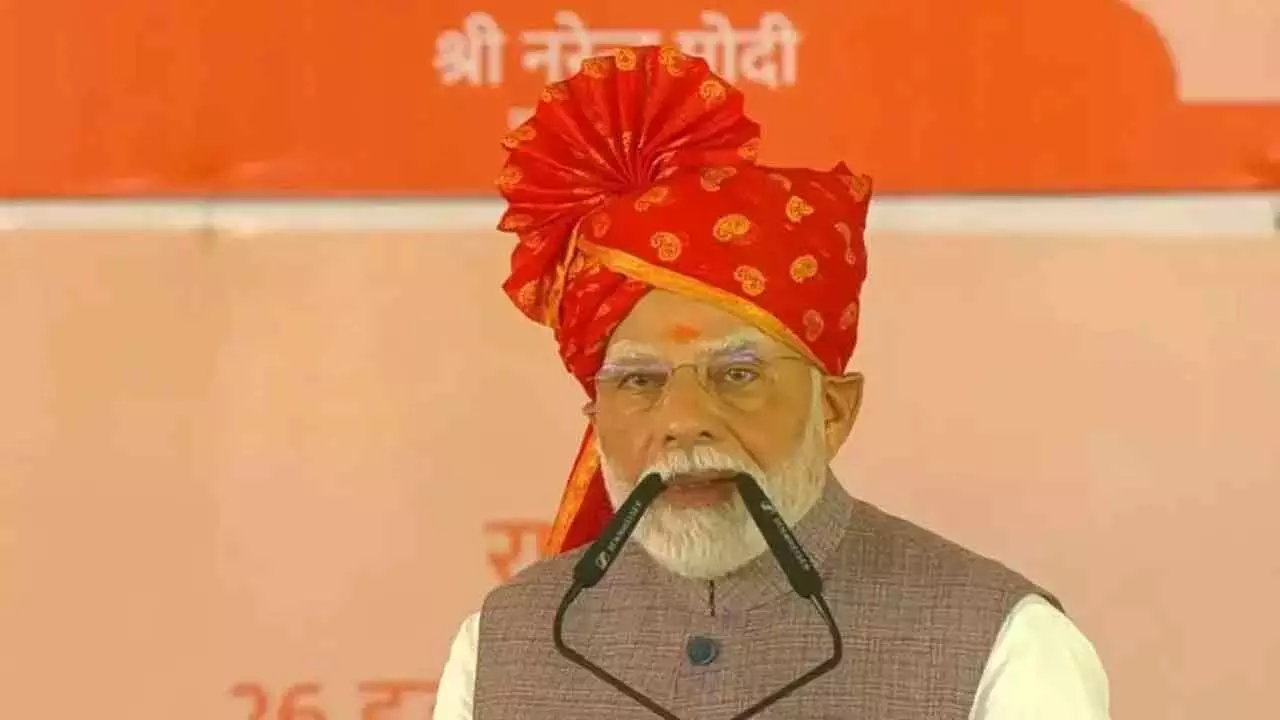Operation Sindoor: Will Modi’s Rallies Help India Improve Its Stature?
There is ample doubt that these assertions hold any real diplomatic value
Operation Sindoor: Will Modi’s Rallies Help India Improve Its Stature?

Is there any need to organise rallies to reiterate the simple fact that terror and talks cannot coexist, and that India will respond strongly to any attack? Prime Minister Modi is using this op-portunity to bolster his political career, which may face obstacles when he turns 75 this coming September
It must be shocking for many to observe Prime Minister Modi speaking in a manner unfamiliar to India's public discourse. Their concern that such rhetoric could bring disrepute to the country on the international stage is completely valid. Surprisingly, the Prime Minister is ignoring the simple fact that India has cultivated an image distinct from other nations.
When the new regime in China took over around the same time India gained independence, it positioned itself as fundamentally different from the leadership of Chiang Kai-Shek. While India maintained the image of a democratic country with a strong commitment to peace and non-violence, China displayed a clear inclination toward militarism and aggression.
Is the Prime Minister simply repeating what he has expressed before? Though his language and metaphors remain similar, the implications of his recent rhetoric are far-reaching. In one speech, he claims to carry ‘sindoor’ in his bloodstream; in another, he declares his readiness to respond with bullets if Pakistan continues to support terrorism. He tells the people of Pakistan to live peacefully, warning that if they fail to do so, they should be prepared to face his bullets.
There is ample doubt that these assertions hold any real diplomatic value. Everyone is aware of India’s relationship with Pakistan. The Manmohan Singh government severed all ties after the 26/11 Mumbai terror attack. Prime Minister Modi did attempt to improve relations, but after Pulwama and now Pahalgam, little remains of goodwill between the two countries.
Is there any need to organise rallies to reiterate the simple fact that terror and talks cannot coex-ist, and that India will respond strongly to any attack? Prime Minister Modi is using this oppor-tunity to bolster his political career, which may face obstacles when he turns 75 this coming Sep-tember. He is also leveraging the moment to campaign for the upcoming assembly elections in Bihar. His rhetoric is carefully tailored to resonate with local audiences.
In Rajasthan, he recalls his visit following the Balakot strike, linking it to his recent visit after Operation Sindoor. He repeats his warnings to Pakistan, and people in border areas respond with enthusiasm. In Gujarat, he speaks of the bullet he has reserved for Pakistanis. His latest speech in Alipurduar, West Bengal, evokes the spirit of Bengal:
“From the land of Sindoor Khela, India showcased its strength through Operation Sindoor. Af-ter the barbaric terror attack in Pahalgam, our forces destroyed terrorist hideouts in Pakistan, sending a clear message—any attack on India will face a decisive response. The roar of Bengal’s tiger echoes: Operation Sindoor is not over.”
There should be no doubt that his rallies celebrating Operation Sindoor are designed to create a pro-war euphoria in the country while appropriating the operation for electoral gain. This has been carried out in a calculated manner.
He has sidelined opposition parties despite their unequivocal support for the government after the Pahalgam terror attack. They even refrained from demanding an impartial probe into the security lapses that led to the loss of 26 lives. This support continued during Operation Sindoor.
The stance of opposition parties marks a clear departure from past responses. Even during the 1962 war with China, opposition parties did not hesitate to hold Prime Minister Jawaharlal Nehru accountable for the country's military defeat. Bharatiya Jana Sangh (the predecessor of the Bha-ratiya Janata Party) leader Atal Bihari Vajpayee led demands for a Lok Sabha session and criti-cized the government in Parliament. Nehru not only agreed to convene a special session amid war but also made it public. He did not hide behind the Army. Army Chief General PN Thapar was forced to resign due to military failures. No one accused critics of being traitors. In a democracy, no one is beyond public scrutiny.
Many expected a better approach from the Prime Minister in his dealings with the opposition. However, he has maintained his usual style, refusing to attend the all-party meeting and ignoring demands for a special session of Parliament. Instead, he is addressing rallies to shape a one-sided narrative, excluding opposition voices.
Will these rallies and rhetoric improve India's stature in the eyes of the global community? Will undermining democracy lead to enhanced national strength? One thing is clear: he is advancing the ideology of the RSS, which promotes militarism as the core of nationalism and endorses lim-ited democracy, both of which are contrary to the ideological foundation of India. The world is unlikely to accept such an approach.
The RSS has long sought to dismantle the ideology of the freedom struggle. Except for the RSS and the Muslim League, all major ideological movements contributed to strengthening India’s struggle for independence, including followers of Gandhi, Ambedkar, Bhagat Singh, Marxists, and Socialists. The RSS remained hostile to these efforts. Peaceful coexistence and dialogue-based conflict resolution have always been integral to India's ideological framework. Any depar-ture from this path will diminish India’s global stature.
Is Prime Minister Modi attacking the foundational ideology of the nation?
(The author is a senior journalist. He has experience of working with leading newspapers and electronic media including Deccan Herald, Sunday Guardian, Navbharat Times and Dainik Bhaskar. He writes on politics, society, environment and economy)

